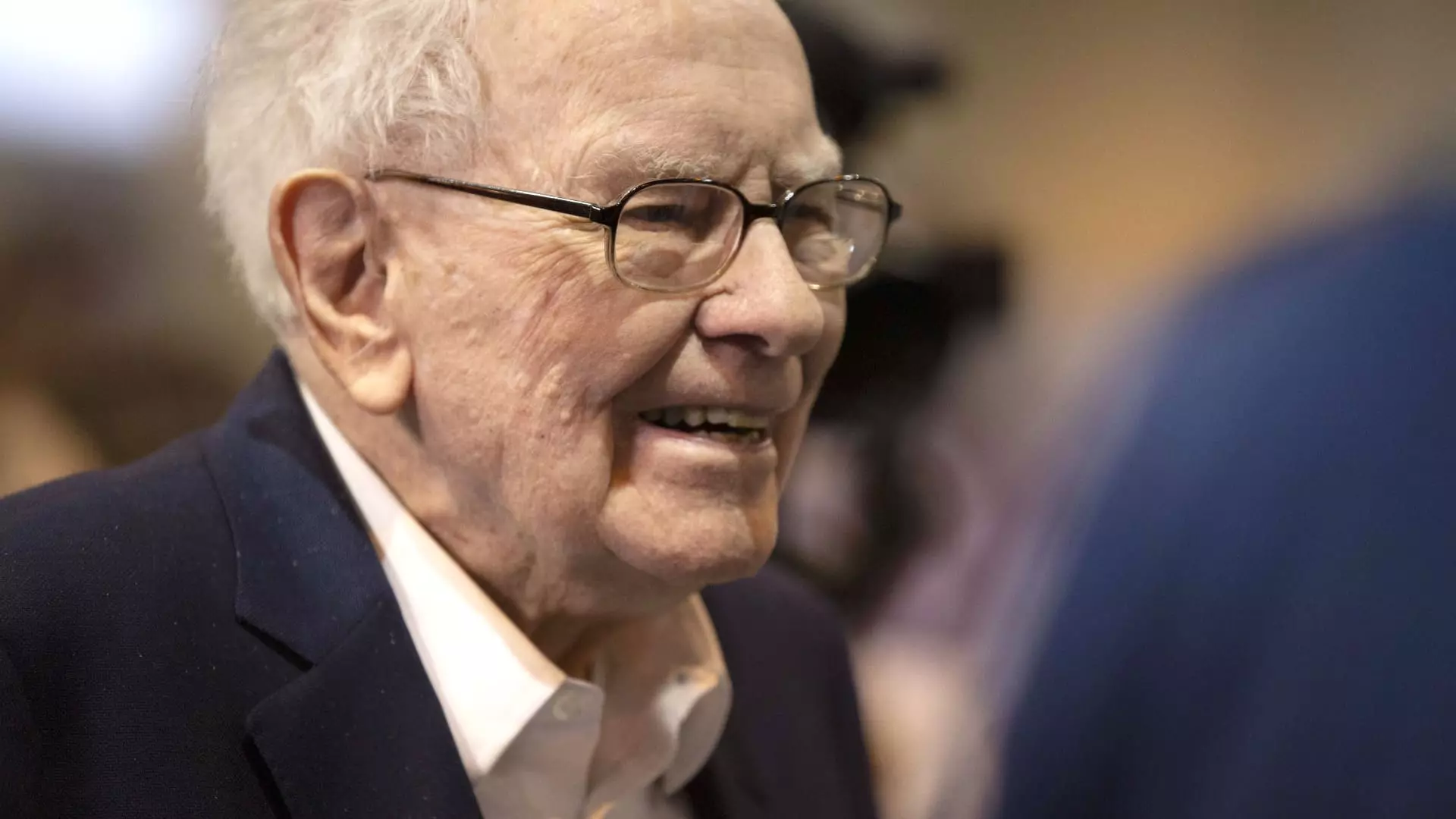Warren Buffett, the venerable oracle of Omaha, continues to captivate investors and analysts alike with his latest financial maneuvers. At an age when most would retire to a life of leisure, the 94-year-old CEO of Berkshire Hathaway remains an influential figure in the investment world. Recent developments, particularly his significant cash accumulation and reduced stock holdings, have raised eyebrows and sparked widespread debate. What does this defensive posture signify for investors who traditionally associate Buffett with bold equity investments?
Buffett’s recent announcement reveals that Berkshire Hathaway has prudently amassed a staggering cash reserve of $334 billion. This figure was articulated in his widely anticipated annual letter to shareholders, yet it left numerous questions unanswered. The investment community is puzzled as to whether this increased liquidity is a precautionary measure against anticipated market downturns or a strategic pivot in Buffett’s investment philosophy. Historically, Buffett has demonstrated an unwavering preference for equities over cash. However, this latest accumulation suggests a contrast that many are struggling to reconcile.
Buffett’s admission of a high cash position raises concerns in the context of interest rates, which are expected to decline from their long-standing peaks. Analysts have expressed trepidation over whether Buffett’s reluctance to invest in equities reflects a bearish outlook on current stock valuations. Furthermore, consistent sell-offs of Berkshire’s equity stakes, including substantial divestitures from industry giants like Apple and Bank of America, further complicate the narrative. Could Buffett’s strategy signify an extended period of financial conservatism in light of potential economic headwinds?
The Bull Market and Buffett’s Atypical Quietude
In stark contrast to his past behaviors, Buffett has remained unusually passive during what has been an extraordinarily bullish period for the stock market. The S&P 500 has surged by over 20% for two consecutive years, yet Berkshire has refrained from repurchasing its own shares— a move that usually symbolizes confidence in the company’s value. Buffett’s inaction during such a robust market raises eyebrows. Is he simply adhering to a carefully laid-out plan, or are there underlying fears that dictate this cautious approach?
Observers note that the lack of stock repurchases, combined with an absence of significant new acquisitions, could signal Buffett’s unease with prevailing market conditions. Elements such as fluctuations in monetary policy, the potential for economic deceleration, and notably high valuations appear to play a pivotal role in shaping his current investment outlook. The question looms large: Is Buffett waiting for a more opportune moment to deploy capital, or is he facing an unsolvable dilemma regarding the perceived overvaluation of the market?
As Buffett gradually cedes the reins of Berkshire Hathaway, much attention is focused on Greg Abel, the vice-chairman overseeing non-insurance operations. Buffett has not only endorsed Abel’s capabilities but also conferred upon him the authority to dictate future investment strategies. This succession plan could explain Buffett’s recent actions—by decreasing large equity positions and establishing a robust cash reserve, he may be setting the stage for Abel to enter what could be a more favorable investment landscape.
In his letter, Buffett viewed both Abel and the late Charlie Munger as adept at spotting investment opportunities, stressing that the ideal time to invest is often scarce. This endorsement of Abel seems to represent not merely a transition of leadership but perhaps a statement of confidence in his successor’s ability to navigate a complex and unpredictable economic environment.
Future Prospects: Ambitious Horizons or Measured Progress?
Buffett’s acknowledgment of bolstering investments in Japanese trading houses hints at the potential for strategic purchases that align with Berkshire’s overarching goals. This focus might suggest a desire to explore international investments or capitalize on undervalued opportunities abroad, contrasting with the increasingly cautious sentiment around American equities. This dual approach could be indicative of a broader strategy to diversify and optimize investment returns in an evolving global market landscape.
Warren Buffett’s recent actions warrant careful scrutiny. The juxtaposition of ballooning cash reserves against significant equity sell-offs presents a multifaceted conundrum for investors. Whether this defensive posture serves as a prudent strategy in uncertain markets or reflects a deeper discomfort with modern valuations remains to be seen. Nevertheless, as Buffett transitions his stewardship to successors like Abel, the investment community will closely monitor how these strategies unfold in both domestic and international arenas.

